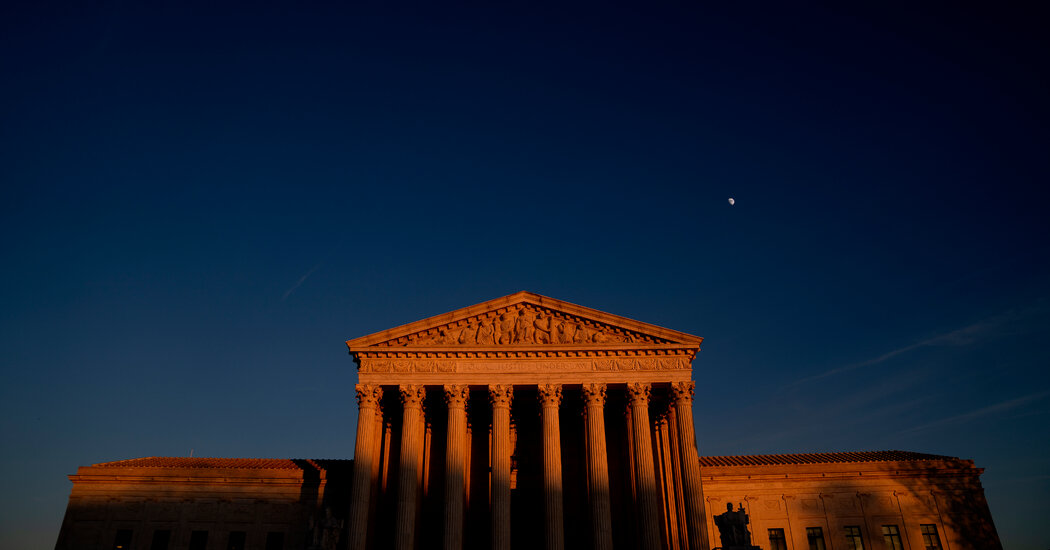But the justices rejected a request from state officials to revisit a 2020 ruling that much of eastern Oklahoma falls within an Indian reservation.
WASHINGTON — The Supreme Court agreed on Friday to decide a question left open by its landmark 2020 decision declaring that much of eastern Oklahoma falls within an Indian reservation. But the justices rejected a request to consider overruling the decision entirely.
The 2020 decision, McGirt v. Oklahoma, ruled that Native Americans who commit crimes on the reservation, which includes much of Tulsa, cannot be prosecuted by state or local law enforcement and must instead face justice in tribal or federal courts.
The question the court agreed on Friday to decide was whether those same limits apply to non-Indians who commit crimes against Indians on reservations.
The case concerns Victor Manuel Castro-Huerta, who was convicted of severely neglecting his 5-year-old stepdaughter, an enrolled member of the Eastern Band of Cherokee Indians who has cerebral palsy and is legally blind. In 2015, she was found dehydrated, emaciated and covered in lice and excrement, weighing just 19 pounds.
Mr. Castro-Huerta, who is not an Indian, was prosecuted by state authorities, convicted in state court and sentenced to 35 years in prison.
After the McGirt decision, an Oklahoma appeals court vacated his conviction on the ground that the crime had taken place in Indian Country. The appeals court relied on earlier rulings that crimes committed on reservations by or against Indians could not be prosecuted by state authorities.
Federal prosecutors then pursued charges against Mr. Castro-Huerta, and he pleaded guilty to child neglect in federal court. He has not yet been sentenced.
In asking the Supreme Court to weigh in on the case, Oklahoma v. Castro-Huerta, No. 21-429, John M. O’Connor, Oklahoma’s attorney general, said the justices had “never squarely held that states do not have concurrent authority to prosecute non-Indians for state-law crimes committed against Indians in Indian Country.”
Lawyers for Mr. Castro-Huerta responded that the Supreme Court, lower courts and Congress had all said that crimes committed on reservations by or against Indians could not be prosecuted by state authorities.
In his petition seeking review, Mr. O’Connor asked the Supreme Court to address two questions: the one on prosecutions of non-Indians and whether the McGirt decision should be overturned.
In its order granting review on Friday, the Supreme Court said it would answer only the first question.
Writing for the majority in McGirt, which was decided by a 5-to-4 vote, Justice Neil M. Gorsuch said the court was vindicating a commitment that grew out of an ugly history of forced removals and broken treaties.
“On the far end of the Trail of Tears was a promise,” he wrote, joined by what was then the court’s four-member liberal wing. “Forced to leave their ancestral lands in Georgia and Alabama, the Creek Nation received assurances that their new lands in the West would be secure forever.”
In dissent, Chief Justice John G. Roberts Jr. predicted that the decision would cause chaos.
“The state’s ability to prosecute serious crimes will be hobbled, and decades of past convictions could well be thrown out,” he wrote. “On top of that, the court has profoundly destabilized the governance of eastern Oklahoma.”
Justice Ruth Bader Ginsburg, who was in the majority, died a few months after the decision was issued. Justice Amy Coney Barrett has since filled her seat, raising the possibility that the court might be open to revisiting its ruling.
In urging the justices to do so, Mr. O’Connor wrote that “no recent decision of this court has had a more immediate and destabilizing effect on life in an American state than McGirt v. Oklahoma.” It has, he wrote, “pitched Oklahoma’s criminal justice system into a state of emergency.”
Lawyers for the Muscogee (Creek) Nation told the justices that the state’s account of the aftermath of the McGirt decision was “fiction rather than fact.”
“The United States, the nation and local officials are successfully collaborating to ensure that there is no crisis of criminal justice on the reservation,” they wrote.
They added that the State of Oklahoma “confuses the court for a political branch, its decisions subject to reversal with the change of seasons.”


























